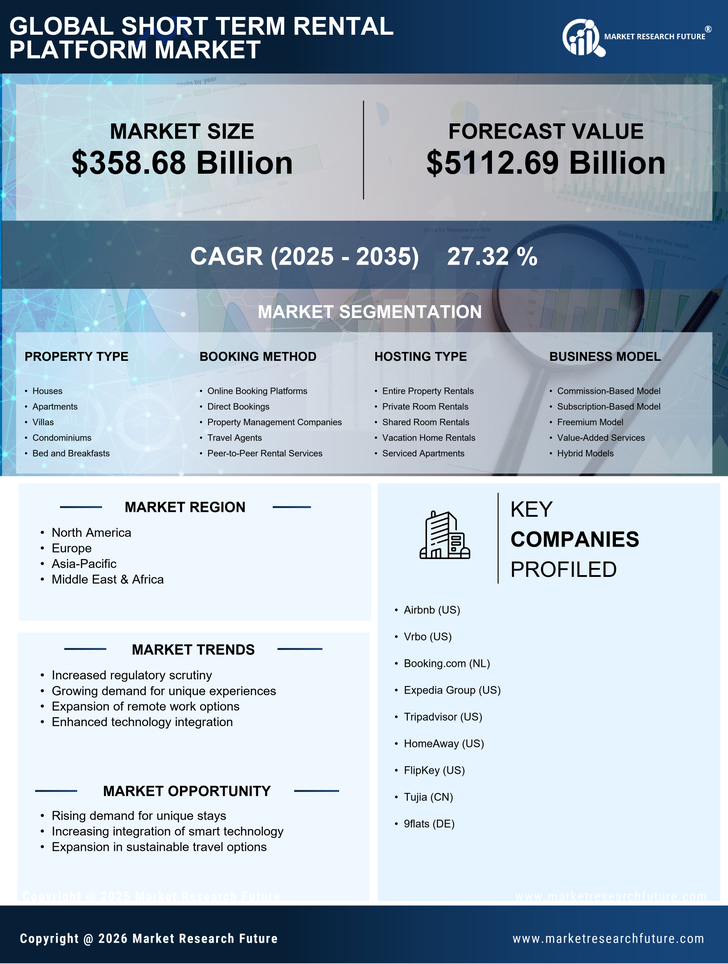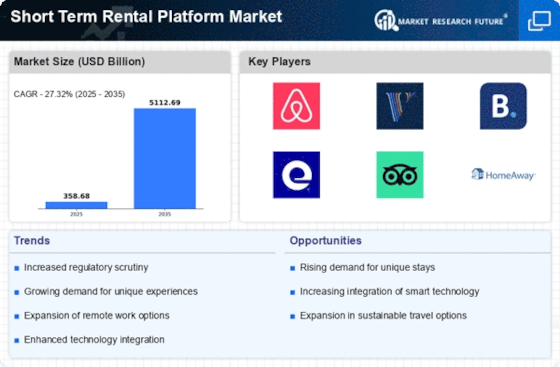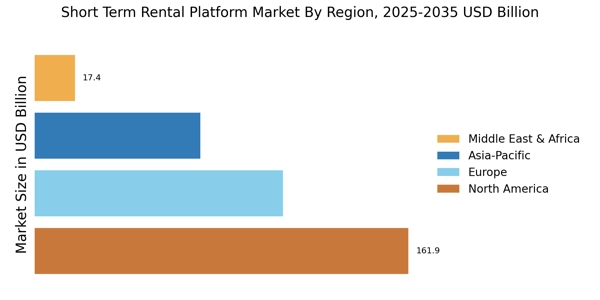The Short Term Rental Platform Market is currently characterized by a dynamic competitive landscape, driven by evolving consumer preferences and technological advancements. Major players such as Airbnb (US), Vrbo (US), and Booking.com (NL) are at the forefront, each adopting distinct strategies to enhance their market positioning. Airbnb (US) continues to innovate its platform, focusing on user experience and expanding its offerings to include unique stays and experiences, thereby appealing to a broader demographic. Vrbo (US), on the other hand, emphasizes family-oriented vacation rentals, leveraging its brand heritage to attract a specific market segment. Meanwhile, Booking.com (NL) is enhancing its digital transformation efforts, integrating AI-driven recommendations to streamline the booking process, which collectively shapes a competitive environment that is increasingly reliant on technology and customer-centric approaches.The business tactics employed by these companies reflect a moderately fragmented market structure, where localized strategies and supply chain optimization play crucial roles. Companies are increasingly localizing their offerings to cater to regional preferences, which not only enhances customer satisfaction but also strengthens brand loyalty. The collective influence of these key players fosters a competitive atmosphere where innovation and adaptability are paramount, as they vie for market share in an ever-evolving landscape.
In August Airbnb (US) announced a strategic partnership with a leading travel technology firm to enhance its AI capabilities, aiming to provide personalized travel recommendations. This move is significant as it underscores Airbnb's commitment to leveraging technology to improve user engagement and retention, positioning itself as a leader in the digital transformation of the rental market. Similarly, in September 2025, Vrbo (US) launched a new marketing campaign targeting multi-generational families, highlighting its unique offerings tailored for larger groups. This initiative not only reinforces Vrbo's brand identity but also capitalizes on the growing trend of family travel, thereby expanding its customer base.
In July Booking.com (NL) introduced a new feature that allows users to book experiences alongside accommodations, effectively creating a one-stop-shop for travelers. This strategic action reflects a broader trend in the market where companies are diversifying their services to enhance customer convenience and satisfaction. By integrating experiences into its platform, Booking.com (NL) not only differentiates itself from competitors but also taps into the lucrative market of experiential travel, which is gaining traction among consumers.
As of October the competitive trends within the Short Term Rental Platform Market are increasingly defined by digitalization, sustainability, and the integration of AI technologies. Companies are forming strategic alliances to enhance their service offerings and operational efficiencies, which is indicative of a shift towards collaborative competition. Looking ahead, it appears that competitive differentiation will evolve from traditional price-based strategies to a focus on innovation, technological advancements, and supply chain reliability, as companies strive to meet the changing demands of consumers in a rapidly transforming market.


















